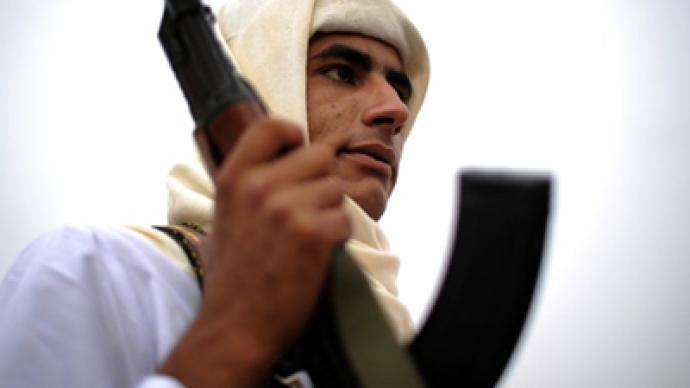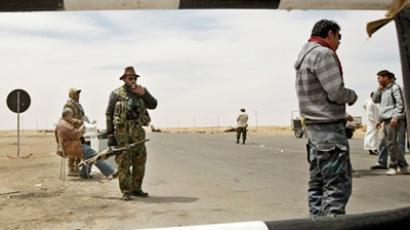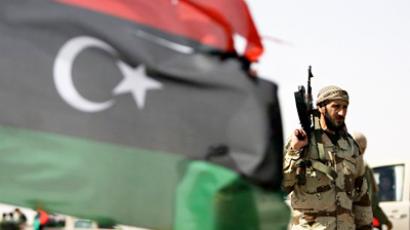NATO pressing for Libyan ground war

As the air war over Libya seems to be bringing forces to a stalemate, NATO is considering a ground campaign – a move which would escalate the already violent conflict.
NATO spokesperson James Appathurai has said the use of ground forces may be the only way to alter the current situation and bring about an end to the Gaddafi regime.“The UN Security Council should adopt a new resolution on Libya. Resolution 1973 does not envisage land operations. We need a new resolution,” said Appathurai.Under the current air operation civilian casualties continue to rise, and signs of success dwindle. Adding additional components of force would likely increase the civilian bloodshed. Journalist Pepe Escobar from the Asia Times explained a ground campaign has always been the plan, but the international community will be less likely to allow it. China, Brazil and other BRIC nations are highly likely to veto any UN resolution which would place ground troops in Libya – but that does not mean NATO will not try.“International law, as we learned for the last few years, is dead,” he said, arguing NATO or others may move forward with ground forces or assassination attempts in Libya even without a UN resolution. Intervening with ground forces or conducting strategic assassinations will not make the situation better, it will worsen, Escobar added. Humanitarian interventions like these often circumnavigate international law and add insult to ongoing problems as opposed to bettering the situation. The situation in Libya has not improved since NATO got involved.“They [United States] don’t know what they want, so they change their minds each day,” he remarked. The inability of the United States to make clear what it wants from an outcome – regime change, humanitarian assistance or otherwise – causes additional problems. The US initially led the campaign but later withdrew leaving NATO allies in charge, yet they remain heavily involved behind the scenes. This will continue to complicate the overall NATO mission.














